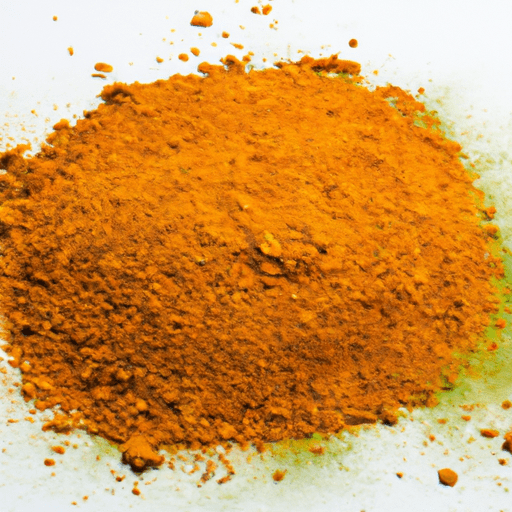All You Need to Know About Bouillon Powder
If you’re an avid cook or enjoy experimenting in the kitchen, you’ve probably come across bouillon powder. This versatile seasoning has quickly become a pantry staple, enhancing the flavors of countless dishes. In this blog post, we’ll dive into the world of bouillon powder, exploring its taste, common uses in cooking, nutritional value, and uncovering some interesting history and facts.
The Taste of Bouillon Powder
Bouillon powder is renowned for its rich and savory flavor. It provides a concentrated burst of umami, the fifth taste, which adds depth and complexity to any dish. Umami is characterized by a satisfying “meaty” or “brothy” taste that stimulates the taste buds. The combination of ingredients in bouillon powder, such as salt, vegetables, herbs, and sometimes meat or poultry extracts, creates this distinctive flavor profile.
Common Uses in Cooking
Bouillon powder is incredibly versatile and can be used in a wide range of dishes. It serves as a convenient substitute for homemade stock or broth, especially for quick and easy weeknight meals. Here are some common uses of bouillon powder in cooking:
Soups and stews: Bouillon powder adds instant depth and flavor to soups and stews. Simply dissolve a teaspoon or two in hot water, and you’ll have a flavorful base to build upon. Whether you’re making a classic chicken soup or a hearty vegetable stew, bouillon powder will enhance the taste.
Sauces and gravies: When you’re in need of an extra flavor boost, bouillon powder comes to the rescue. Stir a bit into your sauces and gravies to elevate their taste and make them more tantalizing. It works wonders in both meat-based and vegetarian sauces.
Rice and grains: Cooking rice or grains in plain water can sometimes be a bit bland. By adding a spoonful of bouillon powder to the cooking liquid, you infuse the grains with a savory essence, making them far more appetizing.
Seasoning: Bouillon powder can also be used as a flavor enhancer for various dishes. Sprinkle a pinch over roasted vegetables, use it as a seasoning for marinades or rubs, or mix it with breadcrumbs for a delectable coating on proteins like chicken or fish.
Instant flavor boost: Sometimes, a dish can taste lackluster and need an instant flavor boost. A pinch of bouillon powder can do wonders in transforming a dull dish into something truly delicious.
Nutritional Value
While bouillon powder enhances the taste of your dishes, it’s essential to be aware of its nutritional content. Bouillon powder is typically high in sodium due to the presence of salt as one of its primary ingredients. However, low-sodium options are available for those monitoring their salt intake. Additionally, some bouillon powders contain dehydrated vegetables, herbs, and spices, adding a slight nutritional benefit.
History and Facts
Bouillon powder has a fascinating history that dates back to the late 19th century. It was invented by a chemist named Justus von Liebig, who wanted to develop a product that could easily supply essential nutrients during times of food shortages or for military forces in the field. His invention, initially known as “Liebig’s Extract of Meat,” became the precursor to modern bouillon powder.
Over the years, bouillon powder has evolved and become widely used in households around the world. It offers a convenient and flavorful solution to add depth to various dishes, making it a must-have in many kitchens.
Bouillon powder is an invaluable pantry staple for any aspiring home cook. Its rich and savory flavor profile, wide range of uses in cooking, and historical significance make it a worthwhile ingredient to explore. While enjoying the taste and convenience it offers, always be mindful of the sodium content and choose options that align with your dietary needs. So, go ahead and unlock the umami secrets of bouillon powder in your culinary adventures!
Interesting Facts About Bouillon Powder:
Origin: Bouillon powder, also known as stock powder or broth powder, originated in the late 18th century in Europe. It was created as a way to preserve the flavor and nutrients of meat by dehydrating it into a powder form.
Common Uses: Bouillon powder is commonly used as a flavor enhancer and base for soups, stews, sauces, and gravies. It adds depth, richness, and umami taste to various dishes. It can also be used as a seasoning for rice, pasta, or vegetables.
Nutritional Benefits: Bouillon powder is a concentrated source of flavor that can boost the taste of dishes without adding significant calories or fat. It contains essential minerals like sodium, potassium, and phosphorus, which play important roles in various bodily functions.
Unique Properties: Bouillon powder is typically made by cooking meats, bones, vegetables, and seasonings together, and then dehydrating them into a powdered form. It is available in different flavors such as chicken, beef, vegetable, and fish, catering to various dietary preferences.
Historical Significance: Bouillon powder became popular during times of war and scarcity when fresh ingredients were scarce or rationed. It allowed people to create flavorful dishes even with limited resources. Over time, it has evolved and become a pantry staple in many kitchens around the world.
Storage and Shelf Life: Bouillon powder is a highly shelf-stable ingredient due to its dehydrated form. It should be stored in a cool, dry place, away from direct sunlight. When stored properly, it can have a shelf life of one to two years.
Please note: While bouillon powder can be a convenient ingredient for flavoring dishes, it is important to be mindful of its high sodium content and adjust its usage accordingly, especially for individuals on a low-sodium diet.




Use the share button below if you liked it.
It makes me smile, when I see it.